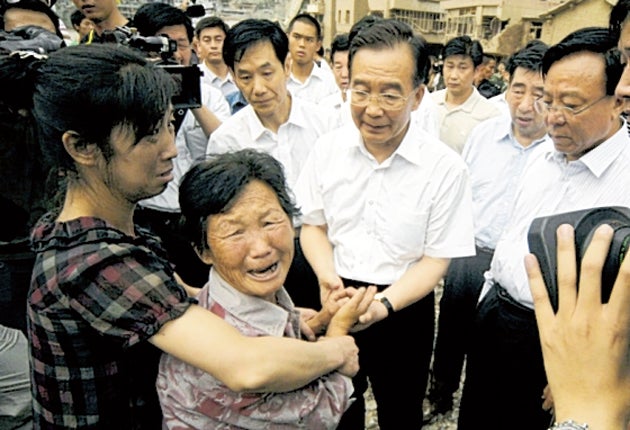Edwin Pak-wah Leung: His speeches after earthquakes and floods show it is more than just an act

Your support helps us to tell the story
From reproductive rights to climate change to Big Tech, The Independent is on the ground when the story is developing. Whether it's investigating the financials of Elon Musk's pro-Trump PAC or producing our latest documentary, 'The A Word', which shines a light on the American women fighting for reproductive rights, we know how important it is to parse out the facts from the messaging.
At such a critical moment in US history, we need reporters on the ground. Your donation allows us to keep sending journalists to speak to both sides of the story.
The Independent is trusted by Americans across the entire political spectrum. And unlike many other quality news outlets, we choose not to lock Americans out of our reporting and analysis with paywalls. We believe quality journalism should be available to everyone, paid for by those who can afford it.
Your support makes all the difference.From what I've seen from Chinese news clips, I don't think that Wen Jiabao is performing. It's something that he can do with all of his heart. Instead of going through the political structure, this is his way of going to the people, although there may be others – including Chinese dissidents – who might be sceptical. It you really examine his speeches when he goes out to the people after the earthquakes and the flooding, it's not pretence.
After all, I don't see other leaders doing it, and I'm not just referring to China. I just don't believe it's an act and can't be interpreted that way.
Wen Jiabao is a liberal, he's a reformer – but he's operating under very difficult circumstances. His predecessors have faced the same problems. It's the leadership collectively that are making these decisions, and not all of them are liberals. He's pretty straightforward but in many ways his hands are tied.
You have to look at the historical context here. Since the Opium Wars of the 19th century, the Chinese have been victimised and it's been very difficult for China to reform.
All these years the leaders have been trying to reform, but it's very hard, particularly in a country of 1.3 billion people. The problem is that there are some elements in the government who are trying to protect their vested interests, politically and economically. They are worried about the positions of their children and their own economic well-being.
China cannot be democratised overnight. My sense is that Wen really wants to reform the political structure, afterall in the late Eighties, he was there for the pro-democracy campaign. It will take time for a more gradual approach.
Edwin Pak-wah Leung is a US-based academic who has written on the political leaders of modern China.
Join our commenting forum
Join thought-provoking conversations, follow other Independent readers and see their replies
Comments